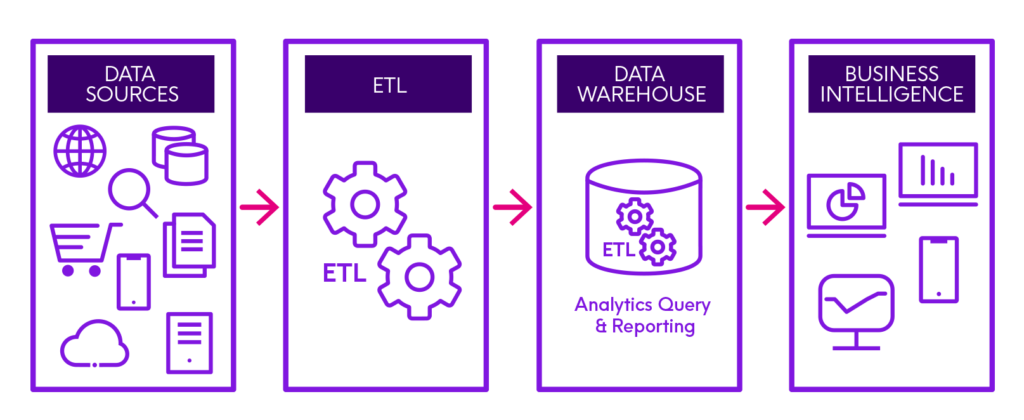
CIOs play a crucial role in driving technological innovation ensuring efficient data management within organizations. Today enterprises face unique data management challenges due to the sheer volume and complexity of data. The exponential growth of data sources, such as transactions, customer information, market data, and regulatory report has led to data management and integration issues.
Furthermore, ensuring data quality and accuracy is paramount, as decisions and insights depend on reliable information. Stringent regulations and data privacy requirements also demand robust mechanisms to safeguard customer data. These challenges can impede the ability of CIOs to harness the true value of data.
AI has emerged as a game-changer offering unmatched opportunities to streamline processes and gain valuable insights from data. In this article, we will explore some common challenges faced by CIOs and ways to address them effectively.
Business Challenges Faced by CIOs in Data Management
- Data Silos:
- Inefficiency and Duplication: Data silos often lead to redundant efforts and duplicated data. Different departments may collect and store similar data separately, resulting in mismanagement and wasted resources.
- Lack of Data Accessibility: Storing data in separate silos creates difficulties in accessing and sharing information across the organization. This hampers collaboration, slows down decision-making processes, and limits the ability to leverage data for strategic initiatives.
- Incomplete Customer View: Data silos prevent organizations from having a comprehensive and unified view of their customers. This can hinder personalized marketing, customer service, and cross-selling efforts. Additionally, it can inhibit the firm’s ability to gain insights into customer behavior and preferences.
2. Data Quality and Integrity:

- Inaccurate Decision-Making: Poor data quality can lead to flawed insights and inaccurate decision-making. If data is incomplete, outdated, or inaccurate, it can misguide strategic planning, risk assessment, and performance evaluation.
- Compliance and Regulatory Risks: In the banking and finance industry, data integrity and accuracy are critical for compliance with regulatory requirements. And may lead to compliance issues, financial penalties, and brand damage.
- Costly Mitigation: Correcting data quality issues can be a resource-intensive process. CIOs face the challenge of allocating resources to identify, cleanse, and reconcile data to improve its quality and integrity.
3. Data Integration:
- Complex IT Landscape: Organizations often operate with a mix of legacy systems, cloud-based platforms, and third-party applications. Each system has its own data format, structure, and integration requirements. Making it difficult to establish seamless data flow and integration.
- Data Volume and Velocity: The abundance of big data and real-time data streams further complicates data integration. CIOs face the challenge of managing large volumes of data from diverse sources. Arising the need to ensure timely integration to support real-time analytics and decision-making.
- Data Transformation and Mapping: Transforming and mapping data between different systems can be a complex task. CIOs face challenges in standardizing data formats, resolving data inconsistencies, and ensuring data compatibility during the integration process.
4. Data Governance Framework:
- Organizational Alignment: Establishing a data governance framework requires collaboration and alignment across different departments and stakeholders. Which requires fostering a data-driven culture within the organization. Gaining buy-in from business units and defining roles and responsibilities poses difficulty in alignment.
- Data Privacy and Security: Concerns regarding data breaches and privacy regulations are on the rise. CIOs must develop data governance frameworks that address data security and privacy requirements. This involves implementing access controls, encryption measures, and monitoring mechanisms to safeguard sensitive data.

- Evolving Regulations: Data governance frameworks need to adapt to changing regulations and compliance requirements. CIOs must stay updated on evolving data protection laws and ensure that their data management practices remain compliant.
How AI Integration Can Help CIOs Overcome These Challenges?
AI can play a significant role in overcoming the challenges faced by CIOs in data management in the following ways-

- Data Integration and Unification: AI-powered systems enable automated data mapping, schema matching, and transformation. That allows for analyzing and understanding the structure and semantics of data from different sources. This reduces the manual effort required for data integration, accelerates the process, and ensures data consistency.
- Data Quality Management: AI can help improve data quality by automatically detecting and correcting errors, inconsistencies, and duplicates in the data. Machine learning algorithms analyze historical data patterns and identify anomalies or outliers, flagging them for review. AI-powered data quality tools also leverage algorithms to standardize and cleanse data, ensuring its accuracy and integrity.
- Data Governance and Compliance: AI can assist in establishing and enforcing data governance frameworks. For instance, AI can automate the identification and classification of sensitive or personal data. This helps organizations comply with data protection regulations like GDPR or CCPA. AI algorithms also monitor data access and usage, identifying potential data breaches or policy violations and providing real-time alerts.
- Data Analytics and Insights: AI technologies like machine learning and predictive analytics extract valuable insights from large volumes of data. CIOs can leverage AI-powered analytics tools to uncover hidden patterns, trends, and correlations in data, enabling data-driven decision-making. AI algorithms can also automate the process of generating reports and visuals. Making it easier for stakeholders to understand and utilize the data effectively.
- Intelligent Automation: AI can automate repetitive data management tasks, such as data extraction, cleansing, and transformation. Robotic Process Automation (RPA) combined with AI capabilities offers the potential to automate tedious and time-consuming data-related tasks. Allowing organizations to allocate their resources toward more strategic initiatives. Intelligent automation can enhance efficiency, reduce errors, and accelerate data processing.
Overall, AI empowers CIOs with advanced capabilities to effectively tackle data management challenges. Enabling them to maximize the value of their data assets, streamline operations, and foster innovation across their organizations.
Selecting The Right AI Solutions for Your Enterprise!
While AI-based solutions hold immense potential, successful implementation requires careful consideration. CIOs must first understand their organizational requirements and objectives before developing a robust data management strategy. Choosing the right AI-based solutions that align with these goals is crucial. Additionally, fostering a data-driven mindset while addressing cultural and organizational challenges, are essential for success.
That’s where HEXANIKA can help CIOs align their digital transformation journey with business goals. Our product #SmartJoin is an innovative AI-enabled data management and governance framework solution. That integrates various processes, including data consolidation, validation, and cleansing, into a single, unified solution. Helping CIOs get a unified view of data through customized dashboards and visuals providing timely alerts in case of data breach or non-compliance.
Experience the Hexanika advantage today. And reshape the way you manage your data. Contact us now to learn more about how we can help your organization thrive in the digital age!


